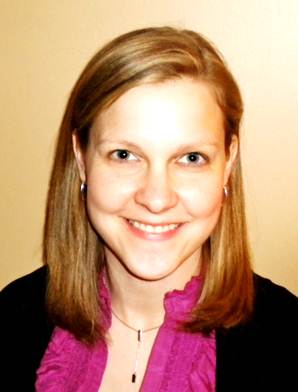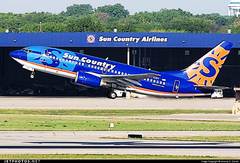
Name Heidi De Hoogh
- Education Master’s Degree in Management (MSM) specializing in Air Transportation from Embry Riddle Aeronautical University, 2008; B.S. Aviation Management, Minnesota State University, Mankato, 1999.
- Target Audience Undergraduate

Ever dream about getting your pilot's license? At 16 years old Heidi De Hoogh could fly a plane before she could drive a car! De Hoogh, a pilot for Sun Country Airlines, gives a bird's-eye view of piloting in this exclusive KidsAhead interview. Read on to learn why flying the friendly skies might just be the job for you.
My main job title now is Director of Safety and Security for Sun Country Airlines. Our airline currently has 14 Boeing-737 airplanes and we fly scheduled travel and leisure service and charter operations out of Minneapolis / St. Paul Airport. In my role as Director, I make sure our operations are safe and adhere to FAA and TSA requirements. The second part of my job is as a management pilot, so I also fly as First Officer in the Boeing-737. When you work your way up to a management or administration position for an airline you will find that most of the people in those positions are also pilots because it is important to know how to fly the airplanes as well.
I initially chose flying because I did not want a desk job. I looked at a lot of different careers in high school and caught the aviation bug pretty early. I actually got my license to fly before I could drive. I first flew when I was 16 and then I got my driver's license right after that.
caught the aviation bug pretty early. I actually got my license to fly before I could drive. I first flew when I was 16 and then I got my driver's license right after that.
No day is ever the same. As Director of Safety and Security I have a huge scope of issues and responsibilities that I manage for the entire department, which makes my job really diverse. When I am in the office my days are filled with meetings and I'm always dealing with different issues. It could be anything from a safety investigation to an FAA issue to an administration goal - like making sure we're in compliance with all of our safety programs.
I really like the flexibility that my dual role affords me. Not everyone can make a difference in an office setting and then pick up a flight when they feel like flying. It's also important to me to ensure that all passengers are getting where they need to go safely and I get to do that in this position.
I was a bit of a tomboy growing up and I always preferred math and the more technical classes over classes like literature. As a kid, I didn't know if I wanted to go into engineering because I wanted to be out and active and it seemed like a lot of engineering jobs were moving to desk jobs.
I joined an organization called the Civil Air Patrol in high school. It's similar to boy scouts or girl scouts, but the focus is on teaching young adults about flying and aviation. I knew I loved to fly at that point and it was just a matter of choosing between a military career or a civil career.
Becoming a pilot costs as much as medical school, so it's a very expensive career to get in to. Airline pilots need a 4 year degree and flight training which can range from $100-$200 per flight hour and you need almost 1000 hours to become an airline pilot. Funding school and flight training were definitely my biggest challenges.
My parents both really supported me and encouraged me to pursue a career that I was interested in. I also have an uncle who is a pilot and he helped me see how great aviation is.
It's really difficult to balance being a full-time student and learning how to fly in your off time, but it's not impossible. If you are close to a local airport with a flight training school, you can do your flight training there in your spare time. Keep in mind it is quite expensive to get all your flight hours, but any path that gives you flexibility in terms of your career is a good path to take. For women specifically there is a great organization called Women in Aviation International that has a mentoring program and can give you valuable advice regarding what education and career choice might be good for you.
There are huge changes coming to this industry. Over 50% of airline pilots are going to retire in the next 15 years. We're looking at unprecedented pilot shortage and a need to encourage all ages and genders to pursue this field. Becoming a pilot is challenging and rewarding and there will be ample opportunities and jobs available in the near future.
(adapted from Godfrey's Flying without Fear, 2003)
Boeing-737 - the Boeing 737 is a short to medium range, single aisle jet airliner.
Charter - a charter flight is a private flight scheduled to meet the needs of specific passengers or organizations
FAA - Federal Aviation Administration (FAA) strives to provide the safest, most efficient aerospace system in the world.
First Officer - the term "first officer" is often used to denote the second in command on a commercial flight
TSA - following September 11, 2001, the Transportation Security Administration (TSA) was created to strengthen the security of the nation's transportation systems and ensure the freedom of movement for people and commerce.
(adapted from dictionary.com, faa.gov)
Why did you choose your major? Did you always know this is what you wan…
Lisa Ingham excels on the field and in the classroom as an Engineering …
Why did you choose your major? Did you always know this is what you wan…